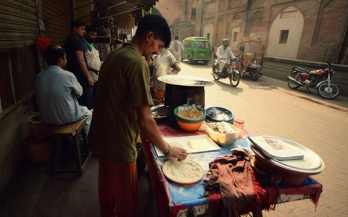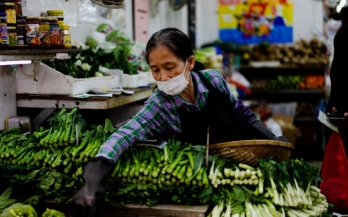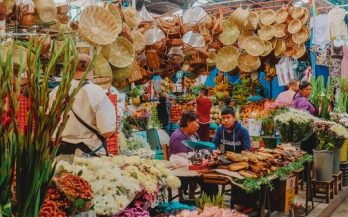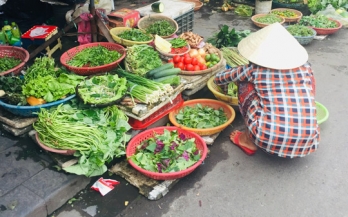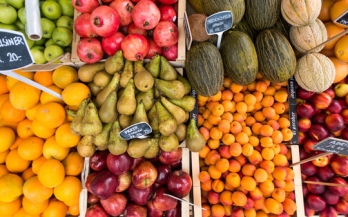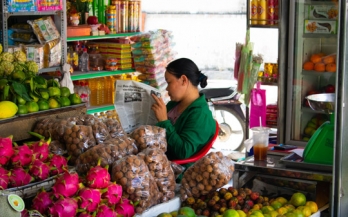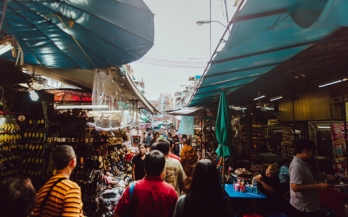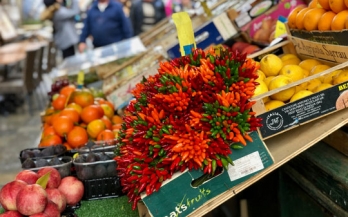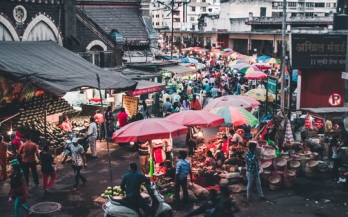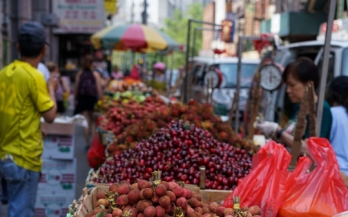Foodborne illnesses contribute to the burden of diseases worldwide. Ensuring food safety is therefore essential to fight malnutrition in all its forms. In Pakistan, the Punjab Food Authority (PFA) was established in 2011 with the responsibility for ensuring the safety and quality of all food items and products in the province through raising awareness and enforcing food hygiene and quality standards.
These document series summarise some rapid assessments undertaken by the Global Alliance for Improved Nutrition (GAIN) to understand early impacts of the COVID-19 coronavirus pandemic on food systems in a set of low- and middle-income countries where GAIN works (Bangladesh, India, Pakistan, Indonesia, Mozambique, Ethiopia, Kenya, Tanzania, Rwanda, and Nigeria).
These document series summarise some rapid assessments undertaken by the Global Alliance for Improved Nutrition (GAIN) to understand early impacts of the COVID-19 coronavirus pandemic on food systems in a set of low- and middle-income countries where GAIN works (Bangladesh, India, Pakistan, Indonesia, Mozambique, Ethiopia, Kenya, Tanzania, Rwanda, and Nigeria).
These document series summarise some rapid assessments undertaken by the Global Alliance for Improved Nutrition (GAIN) to understand early impacts of the COVID-19 coronavirus pandemic on food systems in a set of low- and middle-income countries where GAIN works (Bangladesh, India, Pakistan, Indonesia, Mozambique, Ethiopia, Kenya, Tanzania, Rwanda, and Nigeria).
This paper posits the urban food environment as an extremely useful policy-making framework for developing actions to improve nutrition, as it is the point at which people and food interact. It describes the nutritional challenges of urban areas and how urban food environments influence nutrition through the affordability, physical access to, convenience and desirability of healthy foods.
The world is urbanising rapidly, and malnutrition in urban areas (including both undernutrition and overweight/obesity) is an increasing problem. City policymakers in all countries are well placed to address urban malnutrition by virtue of their access to a wide variety of policy-level entry-points to food access and physical activity.
The position paper "Achieving Urban Food and Nutrition Security with the New Urban Agenda", makes recommendations to the Draft New Urban Agenda, emphasising the importance of creating good urban food policies and the key role cities play in this.
Making Markets Work (MMW) is a joint programme between GAIN and six leading development agencies which aims to catalyse the power of markets and the private sector to make nutritious and safe foods more available, affordable and desirable. The programme charts new models, approaches and concepts to guide governments, investors and business to equip and shape markets to tackle malnutrition.
The "Menu of actions to shape urban food environments for improved nutrition" has been developed by GAIN, the Milan Urban Food Policy Pact (MUFPP) Secretariat and the RUAF Foundation as a reference document that seeks to meet this need. It contains a large number of examples of policies and programmes, from countries in every region and in all income bands, to inspire and encourage other cities to initiate actions.
Urban governance for nutrition is the process of making and implementing decisions that shape sustainable food systems to deliver better nutrition for people in cities. The Framework on Urban Governance for Nutrition and the guide for implementation provide guidance on how city governments and stakeholders can determine appropriate actions to address urban nutrition priorities.
